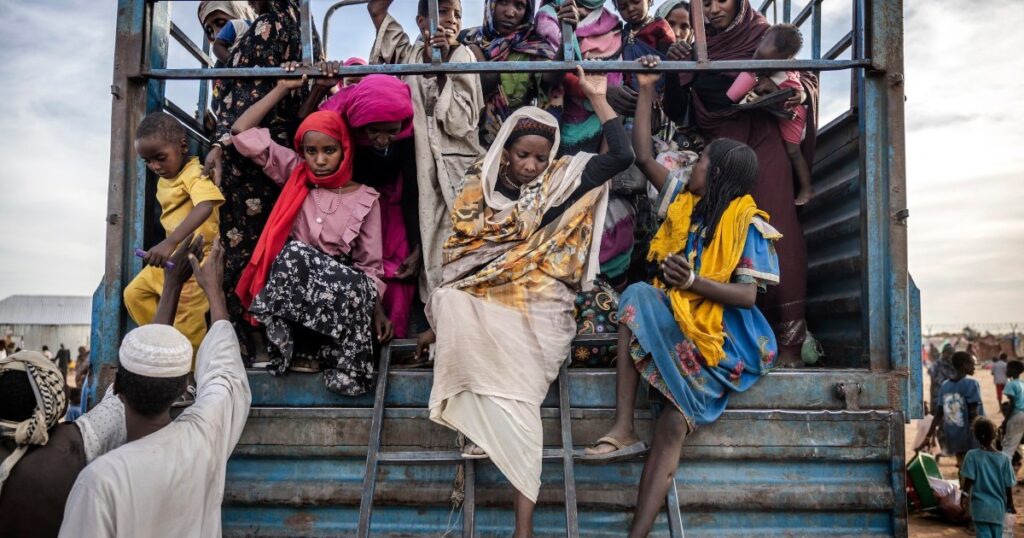In Lenku, South Sudan, 40 kilometers south of the Sudanese border, I met Miyoku, a boy orphaned by the brutality of the Sudanese conflict. Miyoku is one of at least 600,000 refugees who have fled to South Sudan since the conflict began a year ago. He currently lives with his aunt in his one of two transit centers.
Despite facing countless challenges, Miyoku's wish is simple but profound. He will have the opportunity to get an education and realize his dream of becoming a doctor.
Miyoku's story resonated deeply with international donors as they met in Paris earlier this week. His dreams not only represent personal aspirations, but also embody the hopes of an entire nation striving for a better future.
However, the future is still uncertain. In Paris, donors pledged $2 billion to help millions of people in Sudan and host countries. While this is very welcome, it is only half of the $4.1 billion needed to feed people their next meal and provide them with what they need to survive and rebuild their lives.
The conflict in Sudan has so far displaced at least two million people, creating one of the world's largest humanitarian crises. Neighboring countries such as South Sudan, Chad, the Central African Republic, Ethiopia, Egypt, and Libya are feeling the impact through resource pressures, economic disruption, and the risk of conflict spillover.
Up to 1,500 people arrive in Lenk each day, some on donkey carts, others crammed into overcrowded minivans, and those who cannot afford to pay for transportation walk for miles under the scorching sun. We've seen it arrive at the border.
Many of those fleeing were women and children carrying only small bundles of clothes on their backs. Their eyes are filled with fatigue, fear, and anxiety about what the future holds.
When I met with South Sudanese officials and Oxfam partners, the phrase “perfect storm” was mentioned again and again to encapsulate the pervasive challenges that are pushing the country further into poverty.
Even before the Sudanese civil war erupted, South Sudan was already plagued by intercommunal conflicts over resources and a climate crisis, which is creating a dire humanitarian crisis. Two-thirds of the population is in urgent need of food, including 35,000 people facing hunger. Nearly 9 million people currently rely on aid for survival.
Despite contributing little to global carbon emissions, South Sudan has been hit hard in recent years by extreme weather patterns caused by climate change. Severe drought and boiling temperatures followed by heavy rains continue to damage property, infrastructure and crops. This situation, combined with the economic crisis, has had a devastating impact on an already vulnerable population.
To make matters worse, the country's vital oil pipeline through neighboring Sudan was damaged in February. Oil accounts for 90% of South Sudan's revenue, and pipelines account for two-thirds of oil revenues, and the loss of the pipeline would push the already fragile economy to the brink.
Despite South Sudan's humanitarian and economic crisis and the increasing influx of refugees from neighboring Sudan, aid has fallen sharply. In 2023, the UN appeal against South Sudan was halved to $1.79 billion, but less than 4% of the target was met.
The resilience of South Sudan's people has been repeatedly tested, but full implementation of the 2020 peace agreement remains difficult and risks jeopardizing the government's legitimacy. This situation, combined with the economic crisis, could further intensify the ongoing violence.
To overcome this serious crisis, South Sudan needs three important things. First, an immediate injection of aid funding that not only focuses on short-term emergency assistance, but also prioritizes development that empowers the people of South Sudan to break out of the cycle of shock and rebuild their lives.
Second, while external support is critical, the Government of South Sudan is committed to leading the way, building basic infrastructure and providing essential public services to ensure the economy works for the people of South Sudan. should be strengthened.
Third, and most importantly, many people in South Sudan, with elections due later this year, see this as an important step to address governance, economic and humanitarian challenges. about it. Sustained peace will help avert the perfect storm and ensure a stronger South Sudan.
Amid the turmoil, people who love this country, from government officials to grassroots activists and partners, share a commitment to rebuilding a country torn apart by conflict and climate change.
Despite the numerous crises the world is currently experiencing, we should not turn our backs on the people of South Sudan and the refugees fleeing the conflict in Sudan. We call on the donors meeting in Paris this week to maintain momentum, immediately scale up the humanitarian response, and renew our call for an immediate ceasefire and a comprehensive peace process.
I left South Sudan with a heavy heart for Miyoku and the countless others whose futures are in jeopardy. But I'm not going to lose hope. We must all come together as partners in progress and enable South Sudanese communities to chart a path towards a brighter future.
The views expressed in this article are the author's own and do not necessarily reflect the editorial stance of Al Jazeera.

